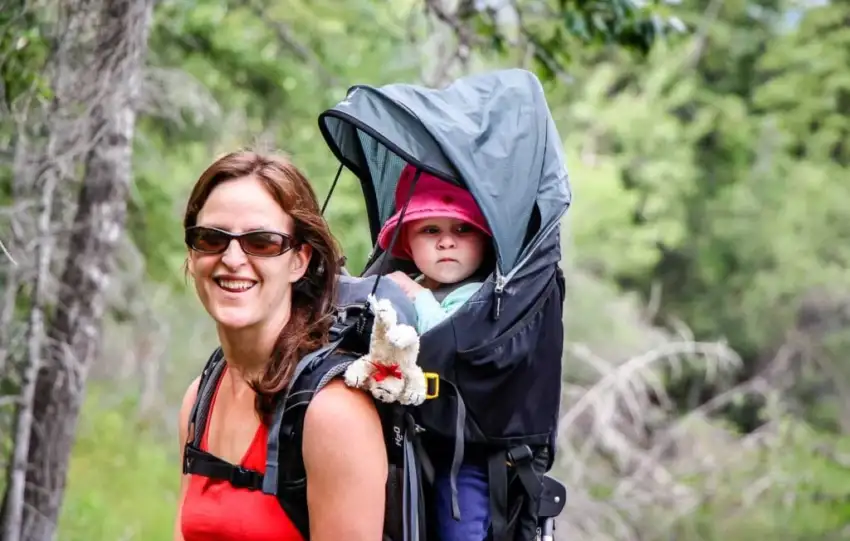Welcoming a newborn into the world is an incredible experience filled with joy and wonder. As parents, you may be wondering, “What can I start teaching my newborn?” While it might seem like your little one is too young to learn, the truth is that from the moment they’re born, babies are primed for learning and development. Let’s discus some essential things to teach newborns to kick start their journey toward growth and understanding.
Bonding and Connection
The first and most important thing to teach your newborn is the power of bonding and connection. Your baby relies on your touch, voice, and presence for comfort and security. Spend quality time cuddling, singing, and talking to your baby to strengthen your emotional connection.
Visual Stimulation
Newborns are fascinated by high-contrast patterns and shapes. Show them black and white images or toys with bold patterns to stimulate their developing vision. Hold these objects at an appropriate distance, ensuring your baby can focus on them.
Auditory Stimulation
Your baby’s hearing is highly developed from birth. Speak softly and soothingly to your newborn. They love to hear your voice, so narrate your daily activities or read simple stories to them. This helps in language development.
Tummy Time
Place your baby on their tummy for short periods each day. This helps strengthen their neck and upper body muscles, preparing them for future milestones like crawling.
Skin-to-Skin Contact
Skin-to-skin contact is not only comforting but also beneficial for your baby’s development. Hold your newborn close to your bare chest to regulate their body temperature and foster a sense of security.
Feeding Time Education
Teaching your newborn how to feed is crucial. Ensure a proper latch during breastfeeding, or learn how to bottle-feed in a way that supports healthy eating habits.
Establishing Sleep Routines
Help your baby distinguish between day and night by keeping the environment dimly lit during nighttime feedings and diaper changes. This can aid in developing a consistent sleep routine.
Sensory Exploration and Gentle Movement
Babies are sensory explorers. Provide them with various textures and materials to touch and explore safely. Soft blankets, plush toys, and textured baby books can engage their senses.
Hold your baby securely and sway gently. This mimics the comforting motions they experienced in the womb. You can also use a rocking chair or baby swing for this purpose.
Bath Time Learning
Bath time offers opportunities for sensory exploration and learning. Gently pour water over your baby’s body, sing songs, and talk to them during this bonding ritual.
Exploring Sounds
Provide simple rattles or musical toys for your newborn to explore. Encourage them to grasp and shake these objects, introducing them to cause and effect.
Naptime and Nighttime Routines
Create a calming bedtime routine that includes activities like a warm bath, soft lullabies, and a soothing bedtime story. This will signal to your baby that it’s time to sleep.
Encourage Responsiveness
Respond promptly to your baby’s cries and needs. This teaches them that their cues will be acknowledged and met, building trust and security.
Communication Through Cooing
Newborns begin to coo and make sounds early on. Respond to their coos with smiles and conversation, creating a delightful back-and-forth interaction.
Visual Tracking
Hold a toy or object in front of your baby and move it slowly from side to side. This helps improve their visual tracking skills and eye coordination.
Mirror Play
Babies are fascinated by their own reflection. Use a baby-safe mirror to introduce them to their own image and engage in mirror play.
Outdoor Exposure
When the time is right, take your baby for short walks outside. The fresh air and gentle outdoor sounds provide a new sensory experience. Let them interact with outdoor natural environment for a good reason.
Bottom Line
Teaching your newborn doesn’t involve complex lessons or formal education. It’s about creating a loving and stimulating environment that nurtures their natural curiosity and development. Every interaction, from cuddling to tummy time, contributes to your baby’s growth.
Remember that each baby is unique, so adapt these teaching moments to suit your child’s pace and preferences. Cherish these early days of discovery and connection, as they lay the foundation for a lifetime of learning and love.





